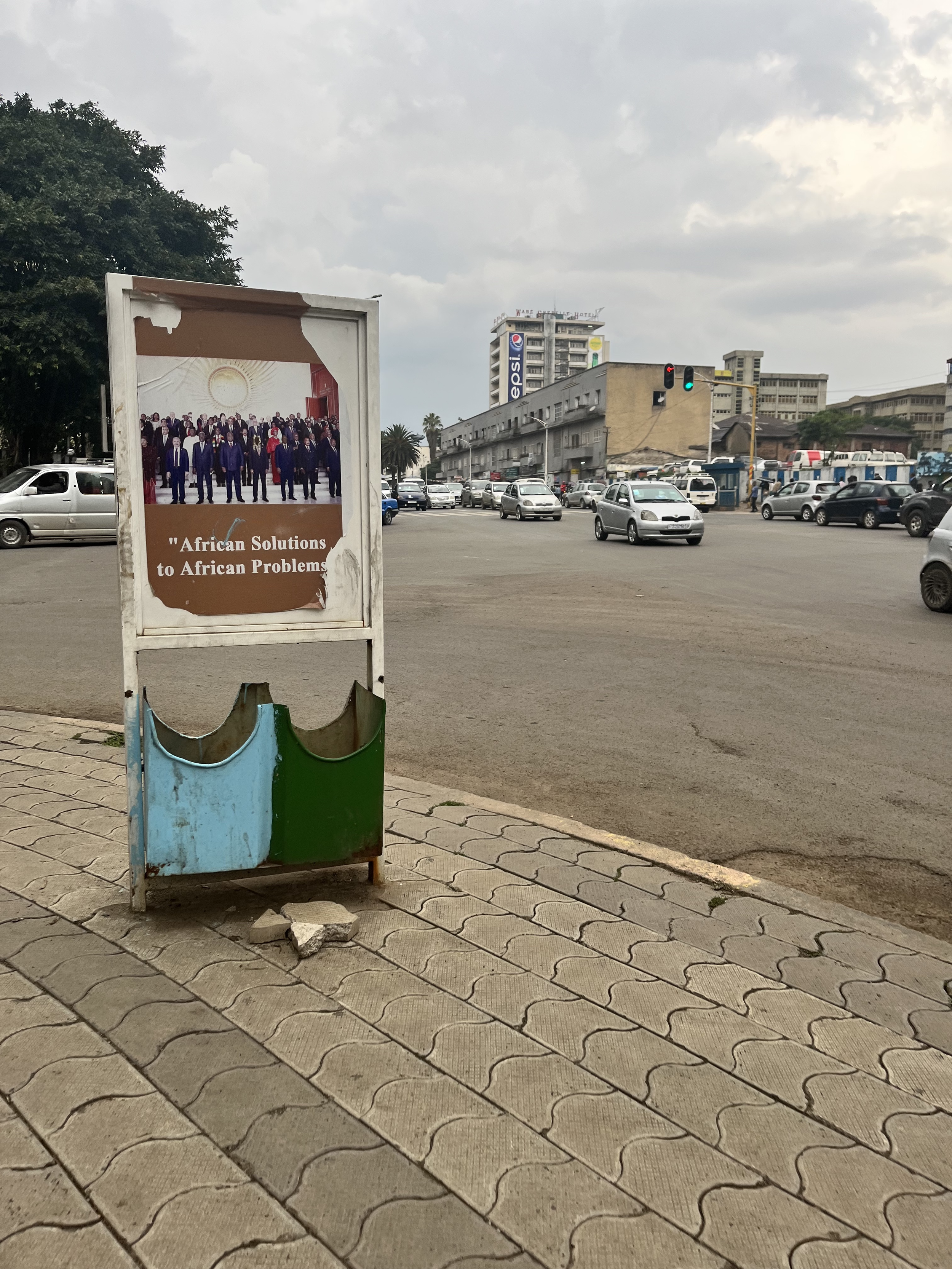Interning in Ethiopia
By Neeraja Kulkarni
I traveled to Addis Ababa, Ethiopia, for an internship supported by CIERP in the summer of 2023. My work had to do with energy access in Ethiopia, where access to electricity is merely 45%. Out of this, 90% is saturated in urban areas, primarily administrations, Addis Ababa, and Dire Dawa.
My internship with 10 Green Gigawatts for Ethiopia, or 10G, was about understanding the on-ground energy situation in Ethiopia in the short span of two months. I was tasked with strategizing the expansion of 10G’s solar deployment services and forming new global partnerships. Through 10G’s co-founder Mikael Alemu (whose reputation in global consultancy services precedes himself), I was able to attend a WASH Multisector Forum (MSF), where I engaged in in-depth conversations regarding energy access and economic development with government officials and international organization representatives. These conversations revealed that investments in Ethiopia are much more focused on provisioning the basic needs for human development, such as clean water sanitation and food security. Secondary research illustrated similar insights, where energy is abundant yet untapped, as the population suffered from chronic conflicts, migration, and persistent drought in the northern parts, which led to food and water insecurity.
I did, though, extensively hear discussions and comments concerning the National Electricity Policy 2.0 (NEP 2.0), which was rightly denoted as overly ambitious at times (as it aimed for provisioning 100% access to electricity until 2025). The deployment of the policy failed due to several errors and unprecedented events such as the pandemic, depleting forex, and stakeholder management. The Ministry of Water and Energy is now determined to create a more realistic and holistic NEP 3.0, where they aim to ensure integration of policy goals and outcomes across sectors. Having lived in both an emerging (India) and a “developed” (U.S.) economies, I realized I’d taken access to energy and even the internet for granted. Further, my on-the-ground reflections helped my Tigray social cash transfer policy analysis group project in Professor Julie Schaffner’s class on Development Economics.
Over the next few days, I attended a job creation conference at the African Union (AU) with my friends at the Creative Hub (my immense gratitude to Nani Detti and Amanuel Getahun for their guidance and support). I was overwhelmed, sitting in the Nelson Mandela Plenary Hall, where African leaders came together, promoting Pan-Africanism, women and youth empowerment for improving development outcomes. I recalled several readings and eye-opening discussions from my Law and Development class, taught by the most inspirational professor, Chidi Odinkalu. It gave me chills, for instance, to see Patrice Lumumba’s image in the halls of the AU. Being on the continent is a constant reminder of the injustice and apathy their communities have faced recurrently for generations.
While climate change was a small part of the discussion, the energy sector was emphasized to promote competition so as to build succinct and affordable supply chains. In my pitch to 10G, I focused on procuring global funds to deploy energy and provide water and food security (through the FEW nexus). While the approach will be contemplated in-house, it was evident that climate action in silos will not lead to development in such plural realities. Further, conversations with AU representatives and other organizations revealed their desire to diversify their import currencies (even in aid), considering the high dependence on dollars and the much-neglected dollar black market that runs infrastructure development within Ethiopia.
Parochial perspectives on climate action can only be sustainable to a certain extent. If people residing in low-developing countries are to live and not just sustain, then the approach to development needs to be multi-faceted, coordinated, and, as Professor Alnoor Ebrahim puts it, “orchestrated.” Sustainable development needs to come from within and not be controlled or defined from the outside. International organizations or even foreign “aid” needs to be focused on giving capabilities to people so that they have the liberty to make choices, as opposed to paralyzing them with perpetual debt.
“African Solutions to African Problems,” Ethiopians, or rather any Africans, are more than capable of defining their own way toward development, as it is a journey. To think otherwise would be a grave injustice. Hence, as was discussed in the Fletcher Africana Conference, for any student, researcher, or practitioner, it is important to embrace the fact that one must go to Africa to understand it, not help it.
Neeraja Kulkarni is a MGA student at The Fletcher School, Tufts University.




